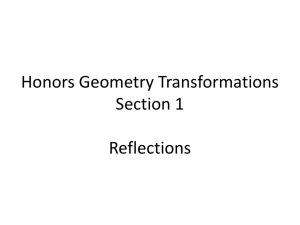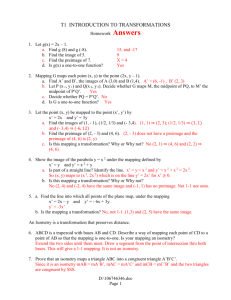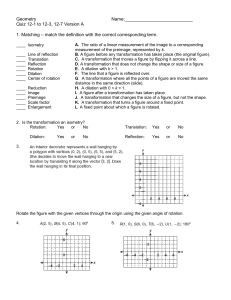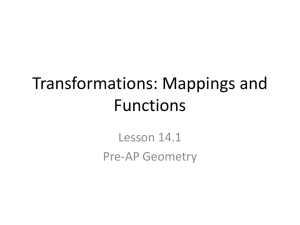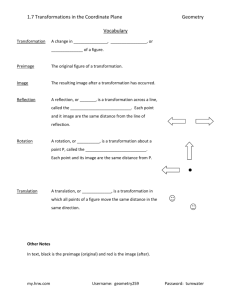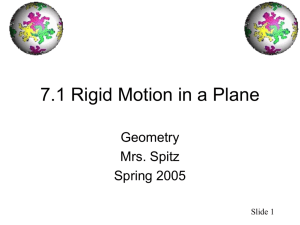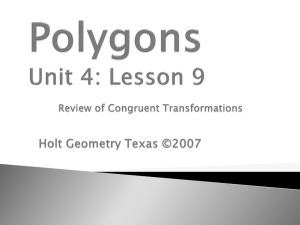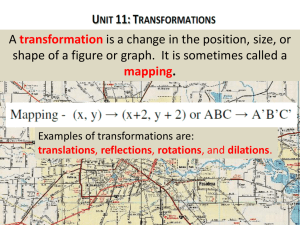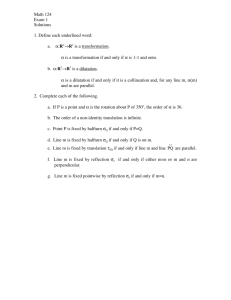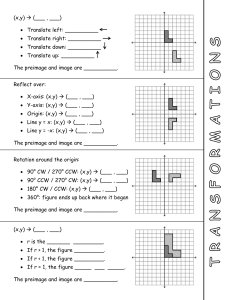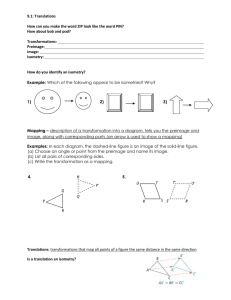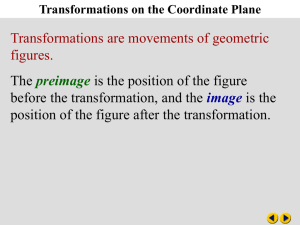Chapter 9.1 Translations
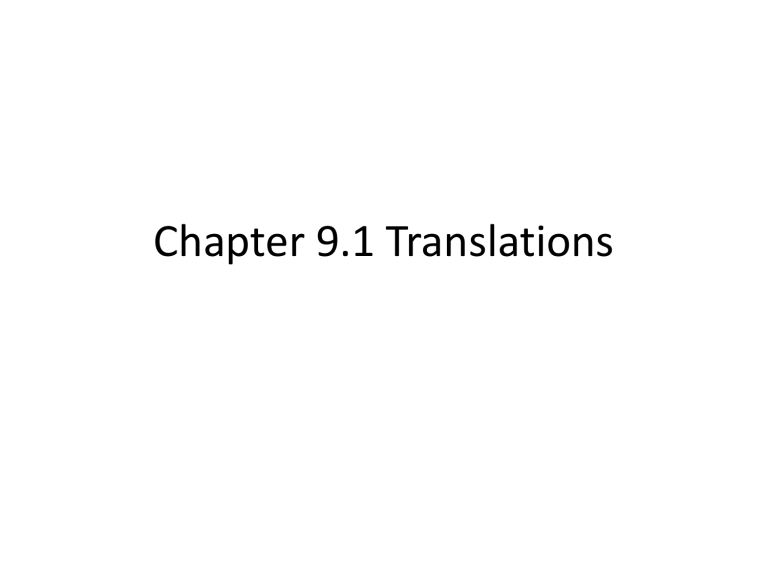
Chapter 9.1 Translations
Vocabulary
• Transformation= change in its position, shape, or size. Change in appearance. 3 main transformations are rotation, reflection, and translation
• Example:
Rotation = (turn!!) Reflection = Flips!!!
Translation = Slide!!!
Vocabulary
• Preimage= original figure
• Image= Resulting figure
• Example: You took a picture on a digital camera and want to put as the wallpaper on the computer
(preimage) and realized the dimension is 800 x 600 but you want to make is fill the screen 1280 x 1024 so you stretch/expand the picture to fill the screen. The picture that’s stretched/expanded is the (image). This is called resizing.
Relating to transformation
• (x , y) (x’ , y’) This reads (x, y) maps onto (x prime, y prime)
• (x , y) (x’ , y’)
Preimage Image
Original Resultant
Vocabulary
• Isometry = transformation in which the preimage and image are congruent
Before transformation
After
Preimage Image
Vocabulary
• Rigid motion = motion that preserves distance and angles
Vocabulary
• Translation (slide) = isometry that maps all points of a figure the same distance in the same direction
• Example:
Translation = slide!!!!
Vocabulary
• Composition = combination of two or more transformations
• Example: In a game of chess, the Knight’s movement is a composition
Example #1
• (x, y) (x-2, y-5)
• Original coordinates Resultant Coordinates
– X(2,1)
– Y(3,3)
– Z(-1,3)
Example #2
• Does the transformation appear to be an isometry?
Preimage image
Example #3
• Original coordinates Resultant Coordinates
– X(1, -2) X’(8, -3)
– Y(3, -4) Y’(10, -5)
– Z(6, -2) Z’(13, -3)
• Write a rule to describe each translation
– (X, Y) ( , )
Classwork/Homework
• You will be given a vocabulary word. Your work is to find the definition (use the book, internet) and give an example (draw something related, example problem, etc)
• Pgs 473-474 #1-3, 7-14, 20-22
